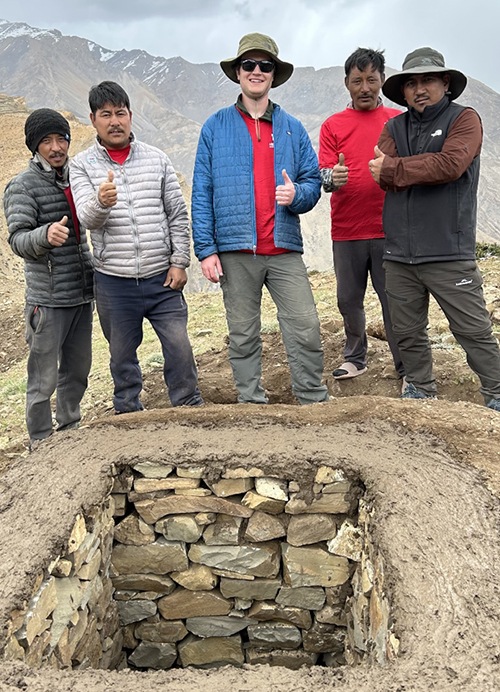

During the summer of 2023, undergraduate Biomedical Engineering student Cannon Hansen participated in a learning abroad program in India, guided by Public Health faculty member Tejinder P. Singh, BDS, MDS, MPH.
The two collaborated on a project focused on exploring menstrual solid waste management practices of Spiti Valley. The project aims to transform the Spiti Valley into an accessible site for affordable, hygienic, and biodegradable mensural products. It also seeks to educate local community members on sustainable methods for disposal of menstrual products. This is particularly important in the Spiti Valley, as proper disposal in the high Himalayas is vital for preserving communal public health, limited agricultural fertility, and fragile ecosystems.
“This research is critical for the overall public health of communities as it seeks to alleviate period poverty amongst menstruating populations while implementing the One Health principles of a sustainable environment,” says Hansen of the potential impact of this work.
"Globally, there is increasing evidence on strategies to dismantle barriers to access menstrual products,” adds Singh. “However, there remains a significant need to tackle the environmental impact of these products. Our study attempts to address this gap by providing findings of menstrual waste management practices in the Himalayan region of Spiti Valley.”
Now that the onsite portion of the project is complete, an abstract derived from their project has been submitted to the Consortium of Universities for Global Health (CUGH) 2024 conference, which will take place in Los Angeles, California in March. The abstract is among the top three finalists for the conference's poster competition.
“It feels great to be recognized as a finalist for the CUGH poster competition,” says Hansen. “I’m excited for the chance to show off the work that Dr. Singh, myself, and our collaborators in India have worked on. We feel it is an important project not only for the Spiti region but for all global public health.”